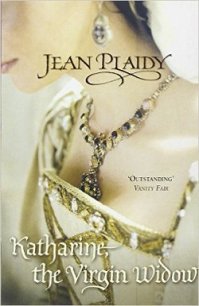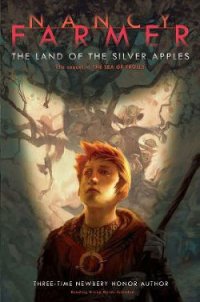Tehanu The Last Book of Earthsea - Le Guin Ursula Kroeber (серии книг читать онлайн бесплатно полностью .TXT) 📗
“She had a whelp,” he said, “that I planned to finish punishing, since it was left half-burned. But she brought me a bird she’d caught instead, a sparrowhawk. Tomorrow we’ll teach it to fly.”
Other voices said words, but she did not understand words any more.
Something was fastened around her neck and she was made to crawl up more stairs and into a room that smelled of urine and rotting meat and sweet flowers. Voices spoke. A cold hand like a stone struck her head feebly while something laughed, “Eh, eh, eh,” like an old door creaking back and forth. Then she was kicked and made to crawl down halls. She could not crawl fast enough, and was kicked in the breasts and in the mouth. Then there was a door that crashed, and silence, and the dark. She heard somebody crying and thought it was the child, her child. She wanted the child not to cry. At last it stopped.
Tehanu
The child turned left and went some way before she looked back, letting the blossoming hedgerow hide her.
The one called Aspen, whose name was Erisen, and whom she saw as a forked and writhing darkness, had bound her mother and father, with a thong through her tongue and a thong through his heart, and was leading them up toward the place where he hid . The smell of the place was sickening to her, but she followed a little way to see what he did. He led them in and shut the door behind them. It was a stone door. She could not enter there.
She needed to fly, but she could not fly; she was not one of the winged ones.
She ran as fast as she could across the fields, past Aunty Moss’s house, past Ogion’s house and the goats’ house, onto the path along the cliff and to the edge of the cliff, where she was not to go because she could see it only with one eye. She was careful. She looked carefully with that eye. She stood on the edge. The water was far below, and the sun was setting far away. She looked into the west with the other eye, and called with the other voice the name she had heard in her mother’s dream.
She did not wait for an answer, but turned round again and went back-first past Ogion’s house to see if her peach tree had grown. The old tree stood bearing many small, green peaches, but there was no sign of the seedling. The goats had eaten it. Or it had died because she had not watered it. She stood a little while looking at the ground there, then drew a long breath and went on back across the fields to Aunty Moss’s house.
Chickens going to roost squawked and fluttered, protesting her entrance. The little hut was dark and very full of smells. “Aunty Moss?” she said, in the voice she had for these people.
“Who’s there?”
The old woman was in her bed, hiding. She was frightened, and tried to make stone around her to keep everyone away, but it didn’t work; she was not strong enough.
“Who is it? Who’s there? Oh dearie - oh dearie child, my little burned one, my pretty, what are you doing here? Where’s she, where’s she, your mother, oh, is she here? Did she come? Don’t come in, don’t come in, dearie, there’s a curse on me, he cursed the old woman, don’t come near me! Don’t come near!”
She wept. The child put out her hand and touched her. “You’re cold,” she said.
“You’re like fire, child, your hand burns me. Oh, don’t look at me! He made my flesh rot, and shrivel, and rot again, but he won’t let me die-he said I’d bring you here. I tried to die, I tried, but he held me, he held me living against my will, he won’t let me die, oh, let me die!”
“You shouldn’t die,” the child said, frowning.
“Child,” the old woman whispered, “dearie - call me by my name.
“Hatha,” the child said.
“Ah. I knew. . . . Set me free, dearie!”
“I have to wait,” the child said. “Till they come.
The witch lay easier, breathing without pain. “Till who come, dearie?” she whispered.
“My people.”
The witch’s big, cold hand lay like a bundle of sticks in hers. She held it firmly, It was as dark now outside the hut as inside it. Hatha, who was called Moss, slept; and presently the child, sitting on the floor beside her cot, with a hen perched nearby, slept also.
Men came when the light came. He said, “Up, Bitch! Up!” She got to her hands and knees. He laughed, saying, “All the way up! You’re a clever bitch, you can walk on your hind legs, can’t you? That’s it. Pretend to be human! We have a way to go now. Come!” The strap was still around her neck, and he jerked it. She followed him.
“Here, you lead her,” he said, and now it was that one, the one she loved, but she did not know his name any more, who held the strap.
They all came out of the dark place. Stone yawned to let them pass and ground together behind them.
He was always close beside her and the one who held the strap. Others came behind, three or four men.
The fields were grey with dew. The mountain was dark against a pale sky. Binds were beginning to sing in the orchards and hedgerows, louder and louder.
They came to the edge of the wonld and walked along it for a while until they came to where the ground was only rock and the edge was very narrow, There was a line in the rock, and she looked at that.
“He can push her,” he said. “And then the hawk can fly, all by himself.”
He unfastened the strap from around her neck.
“Go stand at the edge,” he said. She followed the mark in the stone out to the edge. The sea was below her, nothing else. The air was out beyond her.
“Now, Sparrowhawk will give her a push,” he said. “But first, maybe she wants to say something. She has so much to say. Women always do. Isn’t there anything you’d like to say to us, Lady Tenar?”
She could not speak, but she pointed to the sky above the sea.
“Albatross,” he said.
She laughed aloud.
In the gulfs of light, from the doorway of the sky, the dragon flew, fire trailing behind the coiling, mailed body. Tenar spoke then.
“Kalessin!” she cried, and then turned, seizing Ged’s arm, pulling him down to the rock, as the roar of fire went over them, the rattle of mail and the hiss of wind in upraised wings, the clash of the talons like scytheblades on the rock.
The wind blew from the sea. A tiny thistle growing in a cleft in the rock near her hand nodded and nodded in the wind from the sea.
Ged was beside her. They were crouched side by side, the sea behind them and the dragon before them.
It looked at them sidelong from one long, yellow eye. Ged spoke in a hoarse, shaking voice, in the dragon’s language. Tenar understood the words, which were only, “Our thanks, Eldest.”
Looking at Tenar, Kalessin spoke, in the huge voice like a broom of metal dragged across a gong: “Aro Tebanu?”
“The child,” Tenar said - ”Therru!” She got to her feet to run, to seek her child. She saw her coming along the ledge of rock between the mountain and the sea, toward the dragon.
“Don’t run, Therru!” she cried, but the child had seen
her and was running, running straight to her. They clung to each other.
The dragon turned its enormous, rust-dark head to watch them with both eyes. The nostril pits, big as kettles, were bright with fire, and wisps of smoke curled from them. The heat of the dragon’s body beat through the cold sea wind.
“Tehanu,” the dragon said.
The child turned to look at it.
“Kalessin,” she said.
Then Ged, who had remained kneeling, stood up, though shakily, catching Tenar’s arm to steady himself. He laughed. “Now I know who called thee, Eldest!” he said.
“I did,” the child said. “I did not know what else to do, Segoy. “
She still looked at the dragon, and she spoke in the language of the dragons, the words of the Making.
“It was well, child,” the dragon said. “I have sought thee long.”
“Shall we go there now?” the child asked. “Where the others are, on the other wind?”




